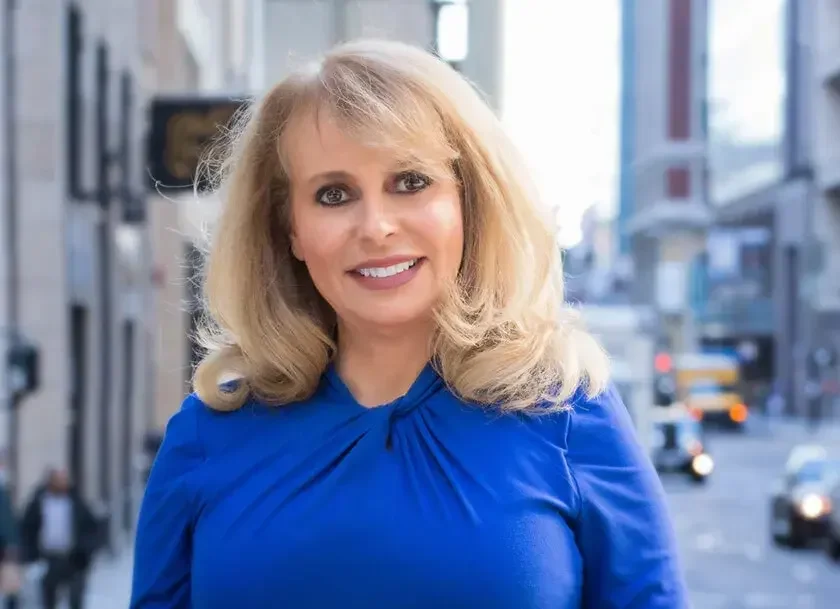Even before COVID-19, underserved and underrepresented groups struggled to get adequate funding and support for their business ventures. Capital to fund startups is difficult to find and, when located, it typically comes with exorbitant interest rates. Networking opportunities and educational resources are also often scarce.
Accion Opportunity Fund (AOF) aims to close that gap by providing affordable loans and free business resources to low-income households, women, immigrants, people of color, and other underserved entrepreneurs who sometimes lack credit history, making traditional lending options unavailable.
LegalZoom joined forces with the nonprofit organization, providing financial aid to small businesses struggling during the pandemic through AOF's Small Business Relief Fund. LegalZoom will also work with AOF to provide resources to help educate borrowers as they form, manage, and grow their businesses.
AOF's track record in the microloan space is nothing short of impressive. Since 1994, AOF has helped over 13,000 entrepreneurs grow their businesses with a 91% success rate.

"If our customers succeed, we succeed," says AOF CEO Luz Urrutia. "It's a simple equation, but, at the end of the day, I think it's caused us to have this excellent payment performance and customer survival rate."
LegalZoom spoke with Urrutia about the inequities in business lending practices, how entrepreneurship benefits entire communities, and how AOF helps position startups for success.
What are the biggest challenges underserved small business owners face today?
LU: Many businesses owned by people of color, immigrants, and women face huge challenges. Banks and many other lenders generally do not lend to startups or under-sourced small businesses. They're perceived to be too risky.
As a result, many small business owners have to resort to financing that causes more damage than good—like merchant cash advances and other predatory practices. In a study we did several years ago, we found that some of the most irresponsible lenders to small businesses were charging rates averaging 94% on an annual percentage rate basis. For Hispanic borrowers, it went as high as 400%.
Another challenge is having the right social capital—networking, for example. If entrepreneurs don't have their own circle of trust, whether it's family, friends, or others in the community doing what they're doing, they have to build one.
We try to help our business owners surround themselves with people that have been there so they can avoid making the same mistakes others that came before them made.
What can entrepreneurship bring to an underserved community?
LU: Entrepreneurship is critical because of its incredible ability to build wealth, not just for the individual and the family running the business, but also to create quality jobs for the workers employed by the business and to drive economic activity within communities.
A Black family that owns a business is 12 times wealthier than a Black family that does not. Pay gaps by gender and by race persist. [Based on our current rate], it will take us 200 years to close the gender pay gap.
We need entrepreneurship to be available to everyone. We need to pay extra attention to accelerating support for Black, Latinx, indigenous, and women business owners so that these folks with enormous determination and resolve get the resources they need to get ahead.
How do you view equity in entrepreneurship?
LU: To me, inclusive and equal entrepreneurship means that we're making opportunities to build businesses [available to] everyone. It's really about supporting entrepreneurs from all backgrounds and creating what I call the genuinely level playing field. [That means] understanding and then overcoming the barriers faced by different people in different places, unleashing the creative potential that people have within themselves, and using this to create a more sustainable future for all.
When a woman is as likely to get investment as a man, when a Black or a brown business owner is charged the same rate on a loan as a white business owner with the same business profile, that's when we will have arrived. That's when we will say we have equity, and then we have inclusion. Talent is equally distributed, but we all know that opportunity is not. That's what we're fighting day in and day out.
AOF has remarkable repayment rates. How are you able to consistently achieve such a high standard?
LU: First of all, you have to put folks in loans that they can afford to pay back, and the way that you do that is by underwriting every loan. We don't rely just on FICO score. FICO is great, but it's very historical, and we look at folks who don't have FICO. We look at the future. We look at their business plan. We look at their bank accounts.
Through alternative data and technology, we look at how they have managed other obligations and we basically underwrite every loan for ability to pay. We don't make a loan to somebody if we can't assess that they can pay it off.
The second thing is that our rates are fixed rates. When somebody gets into a two-, three-, or five-year loan, they know exactly how much their monthly payment will be. For small businesses that have ebbs and flows in their cash flow, it's really important to know their payment is not going to change if the interest rates change.
The third thing is that we provide a lot of coaching for folks who have not borrowed before. We'll talk about the importance of building a credit score, how to manage the business, and how to put a budget in place.
All that combined really makes a better borrower.
What other support, beyond loans, do you offer to borrowers?
LU: We offer small business owners opportunities to learn from experts on a range of topics. We're there to help them understand how to manage different aspects of their business.
And we work a lot with businesses to help them develop a business plan. Whether you are a startup or a business that's already established, having a thoughtful business plan that can be presented to partners or potential investors, as well as help you keep the business on track, is really important.
How will this partnership with LegalZoom help further your mission?
LU: First and foremost, supporting our Small Business Relief Fund. We launched that last year and it really has provided critical financial relief through debt payment relief, debt forgiveness, and technical assistance to small businesses that were impacted by COVID.
Nearly 90% of the small businesses that Accion Opportunity Fund serves are owned by people of color, immigrants, and women. These are all businesses that were left behind. That's why the Small Business Relief Fund is so incredibly powerful.
The second thing is that we both bring expertise and knowledge to the partnership that creates educational opportunities for small business owners.
Finally, I hope that we're able to support each other's customers. All our customers need legal advice and support. There are partnerships that are made in heaven because both bring very complementary strengths. I think this is one of them.

